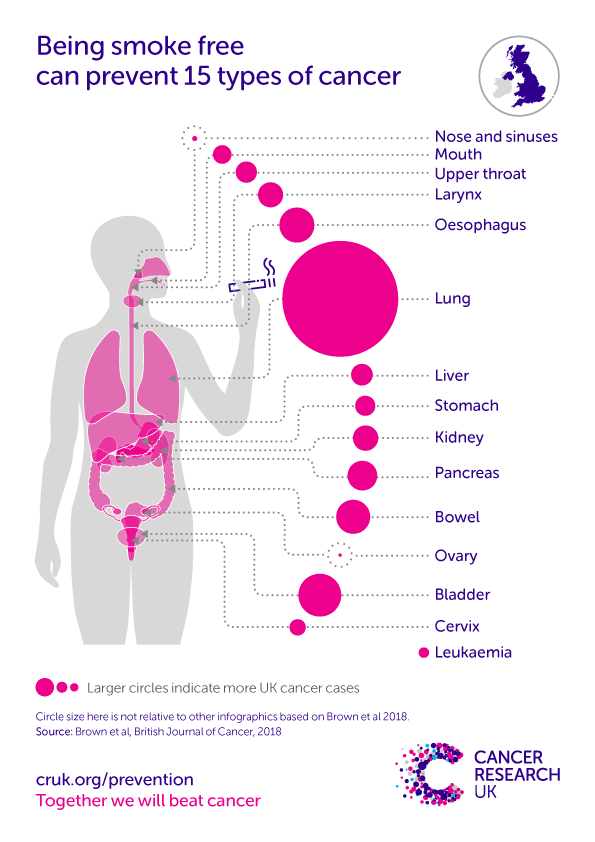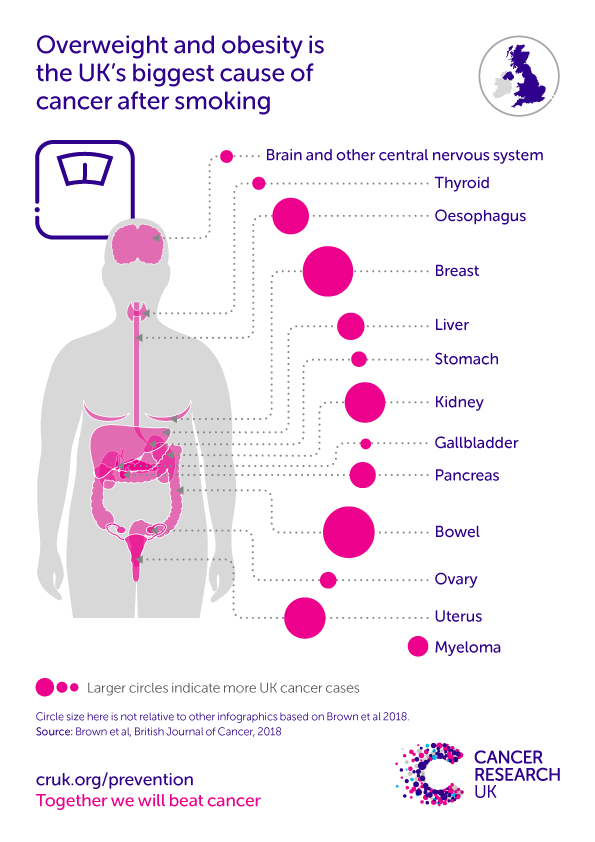The estimated lifetime risk of being diagnosed with pancreatic cancer is 1 in 59 (2%) for females, and 1 in 55 (2%) for males born in 1961 in the UK. [1]
These figures have been calculated on the assumption that the possibility of having more than one diagnosis of pancreatic cancer over the course of a lifetime is very low ('Current Probability' method).[2]
See also
Lifetime risk for all cancers combined and cancers compared
Pancreatic cancer incidence statistics
Want to generate bespoke preventable cancers stats statements? Download our interactive statement generator.
References
- Lifetime risk estimates calculated by the Cancer Intelligence Team at Cancer Research UK 2023.
- Estève J, Benhamou E, Raymond L. Statistical methods in cancer research. Volume IV. Descriptive epidemiology. IARC Sci Publ. 1994;(128):1-302.
About this data
Data is for UK, past and projected cancer incidence and mortality and all-cause mortality rates for those born in 1961, ICD-10 C15.
Calculated by the Cancer Intelligence Team at Cancer Research UK, 2023 (as yet unpublished). Lifetime risk of being diagnosed with cancer for people in the UK born in 1961. Based on method from Esteve et al. 1994 [2], using projected cancer incidence (using data up to 2018) calculated by the Cancer Intelligence Team at Cancer Research UK and projected all-cause mortality (using data up to 2020, with adjustment for COVID impact) calculated by Office for National Statistics. Differences from previous analyses are attributable mainly toslowing pace of improvement in life expectancy, and also to slowing/stabilising increases in cancer incidence.





